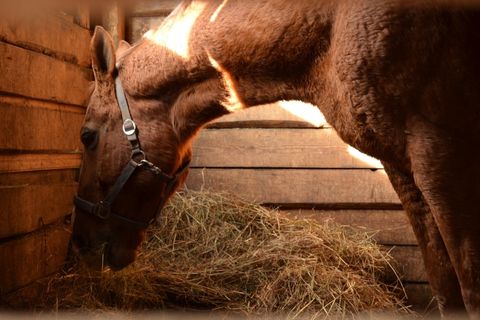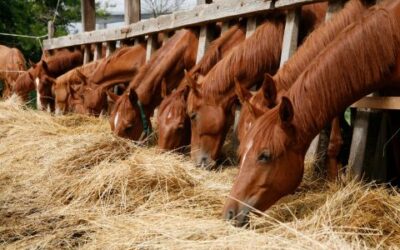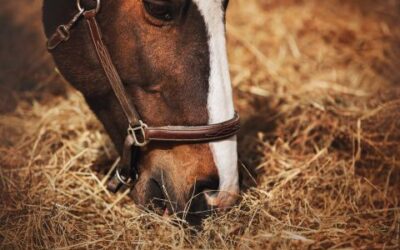
Much like for humans, carrying excess weight can be detrimental to the health of your horse. Obesity can affect a number of the horse’s systems while also causing pain and discomfort. For this reason, it is essential to work with your veterinarian to keep your horse at a healthy weight. Learn about some of the most common health risks for overweight horses.
Dr. Tom Lenz, DVM, M.S., explains, “Fat horses are at greater risk for exercise intolerance, founder, metabolic syndrome, insulin resistance, the formation of colic-causing lipomas (fat tumors in the abdomen), joint and bone problems, reduced reproduction efficiency, and increased stress on their heart and lungs.” Additionally, overweight horses have increased risks for founder and laminitis, increased stress on their heart and lungs, and difficulty cooling themselves efficiently.
Many of these problems build on one another and can create further complications. For example, a horse with a metabolic syndrome may gain additional weight, putting them at further risk for insulin resistance. The excess weight that the horse is carrying then places even more stress on the horse’s legs and hooves, creating the potential for lameness. This becomes a very vicious cycle, especially because lame horses often require a reduction in their work, which can be difficult to come back from, especially if a horse decreases their cardiovascular fitness and becomes more intolerant to exercise.
When a horse is overweight, they are more easily fatigued, which often means that they do not get adequate amounts of exercise. This makes it difficult for your horse to lose the excess pounds without modification to their diet. If you are considering dietary alterations for your overweight horse’s treatment, it is important to cut back on calories while still providing your horse with ample amounts of forage feed. Once you find the best feed for your overweight horse, make sure it’s readily available. This is because horses evolved as grazers and need to have foodstuffs constantly moving through their systems. Studies now show that if your horse goes without food for over four hours, it may cause a spike in their cortisol levels—which can, in turn, cause additional weight gain. Whenever you are trying to have your horse lose weight, it is important to decrease their caloric intake without sacrificing their hay intake.
If you have any questions regarding your horse’s weight or their nutritional program, we encourage you to consult with your veterinarian.




